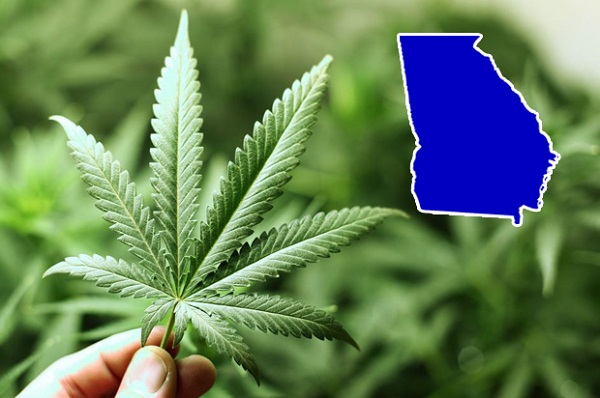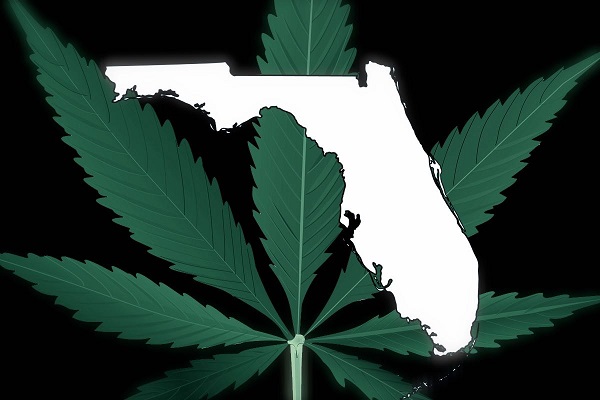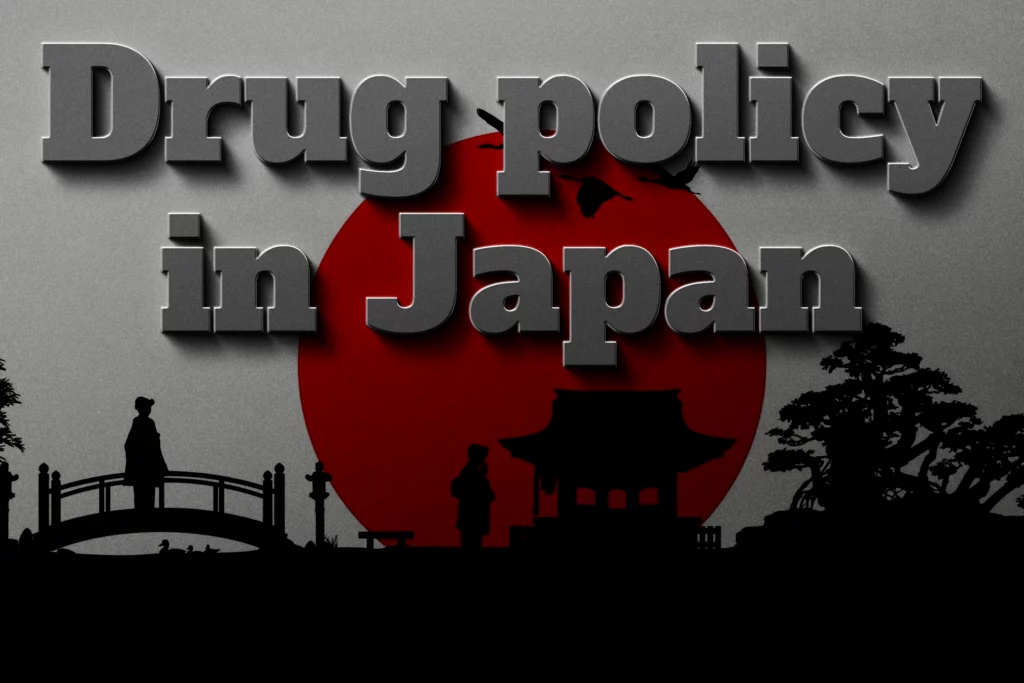
Legal provisions prohibit the possession and use of cannabis in Japan. The Cannabis Control Act was enacted in 1948 during the American occupation of the country after World War II under General MacArthur and has remained largely unchanged since then.
Can cannabis be stored and consumed in Japan?
The law was passed despite the fact that Japan did not have much of a problem with cannabis abuse. Cannabis grew abundantly throughout the country and was considered an important crop with practical, religious and spiritual significance.
The law specifically prohibits both the possession and use of cannabis, and those caught possessing it (for personal use) can be sentenced to up to five years in prison. Despite the beneficial properties of cannabis, cannabis is highly intolerant by the authorities and people are often jailed for possessing even a single cannabis cigarette.
There is also a risk of social repercussions that could include, for example, loss of employment or expulsion from school. This is seriously holding back the population of Japan. Actress Saya Takagi is a famous example of this. After she was caught with a supply of marijuana, all the programs she was involved in were taken off television. Her theme music for the show was immediately removed. Also, a national team rugby player was disqualified for life after being caught, and Toshiba severed all sponsorship contracts with his regional team.
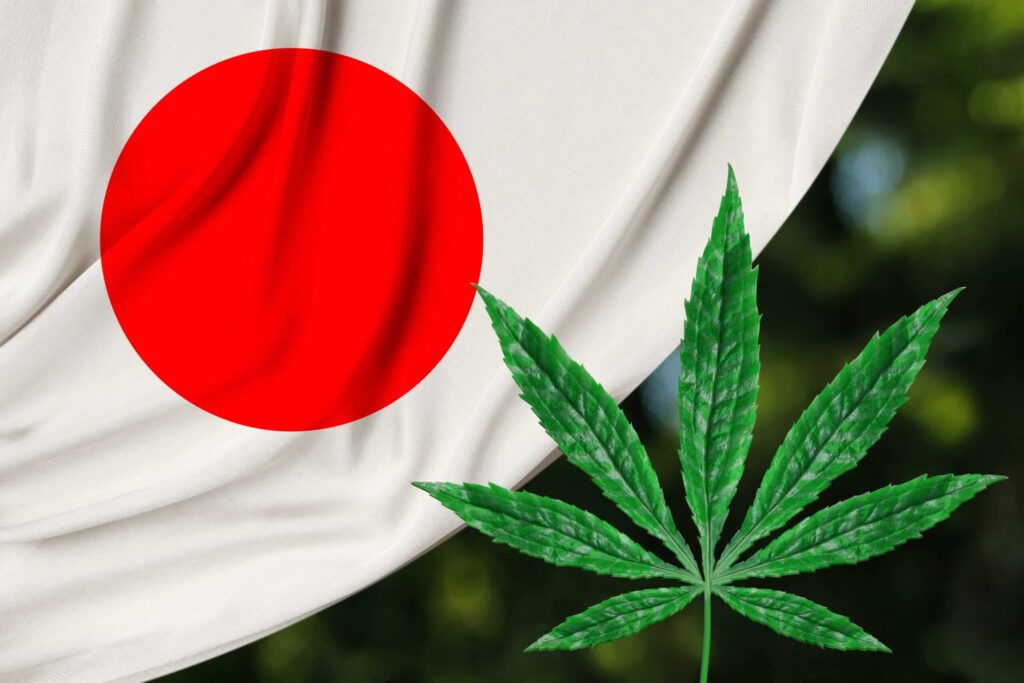
Any foreigner accused of using or possessing cannabis can be deported and banned from entering the country for life. Musician Paul McCartney is the most famous example of such a case in Japan: after a marijuana bust, he was not allowed to return to the country for eleven years after the incident.
Despite the strong social and criminal consequences, the number of cannabis possession cases is gradually increasing. In 2019, 4,321 offenses related to the substance were reported. In 2020, that number surpassed 5,000, a record high for the country.
Cannabis trade in Japan
If apprehended with an amount of cannabis that can be «used for profit» (i.e. sold) (i.e., sell), the Cannabis Control Act stipulates that the term of imprisonment increases to seven years. The offender can also receive a fine of 2,000,000 yen, depending on the specific circumstances.
For importing or exporting cannabis, the prison term remains the same, but the fine increases to 3,000,000 yen. If someone is found to have «brokered» the transfer, sale or supply of cannabis, they can be sentenced to two years in prison.
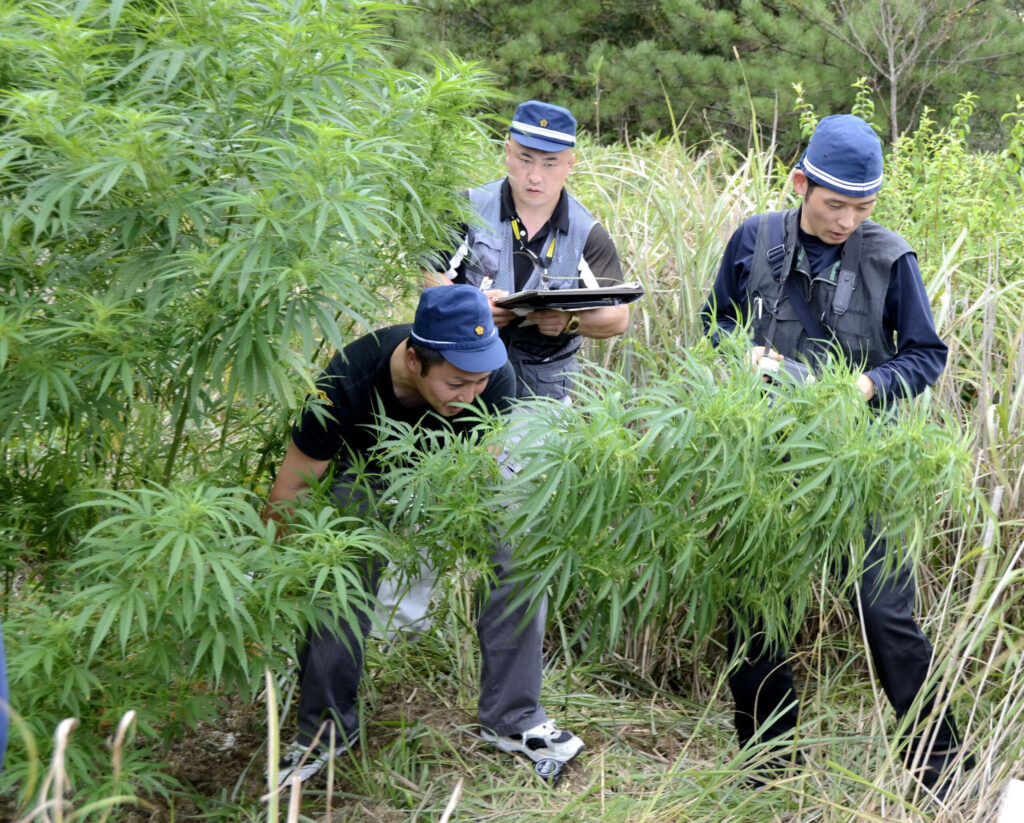
Is it possible to grow hemp in Japan?
Growing cannabis is illegal in Japan, and the offense carries a prison sentence of up to seven years and a fine of 3,000,000 yen.
However, the situation used to be different. Junichi Takayasu, curator of Japan’s only cannabis museum, explained how widespread cannabis cultivation was in the country.
He reported that cannabis cultivation used to take place all year round. The seeds were planted in the spring and harvested in the summer. The stalks were then dried, then soaked and turned into fiber. In the winter, this fiber was used to weave cloth and sew clothes ready for the next season.
When the Cannabis Control Act was passed, Japanese farmers were in a panic. Emperor Hirohito had promised them that they could continue to grow cannabis, and they continued to do so despite the new law. In 1950, there were about 25,000 hemp farms operating in the country.
In the following years, the number of farms decreased dramatically, but not because of the law. In fact, it was because of the growing popularity of synthetic fabrics and the increased cost of cultivation licenses.
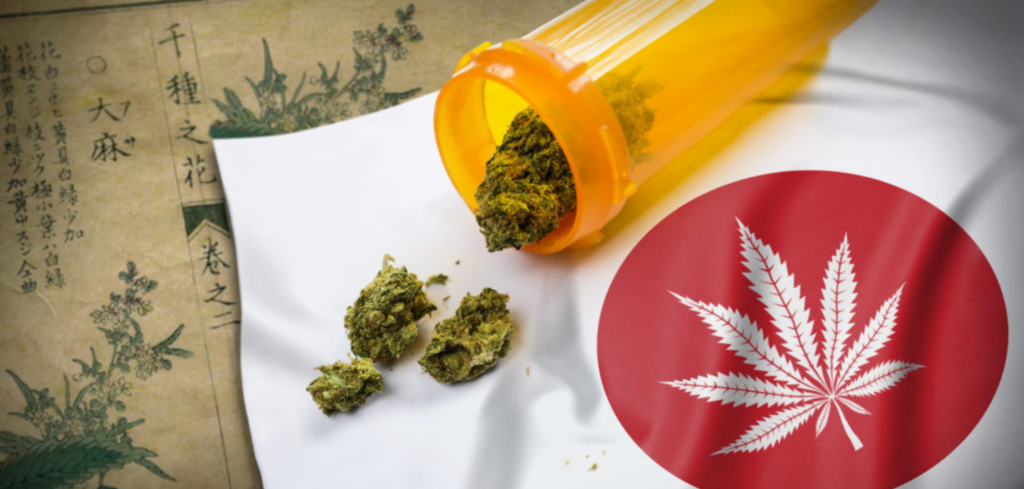
Is CBD legal in Japan?
Although the Japanese authorities have taken a tough stance on cannabis, the law allows the use and sale of CBD. It was legalized in 2016 , and now some companies are allowed to produce CBD products provided they are made from the stem and seeds of the cannabis plant. In 2018, these companies were allowed to advertise their products.
Is it possible to send cannabis seeds to Japan?
The Cannabis Control Act specifically classifies cannabis seeds as an illegal substance. However, the law is ambiguous on this issue and it appears that possession of seeds is legal if they are not used for cultivation. If the seeds are sterilized (and cannot be germinated), then technically they can also be legally mailed into the country.
Medicinal cannabis in Japan
Before World War II, cannabis had an important place in traditional Japanese medicine, used to treat insomnia and relieve pain. However, the situation changed with the enactment of the cannabis law in 1948.
Currently, there is no program for the medical use of cannabis in Japan. It is noted that in 2007, Otsuka Pharmaceuticals, a Japanese company, was licensed by GW Pharmaceuticals to conduct research on Sativex by GW Pharmaceuticals, which was conducted in the United States.
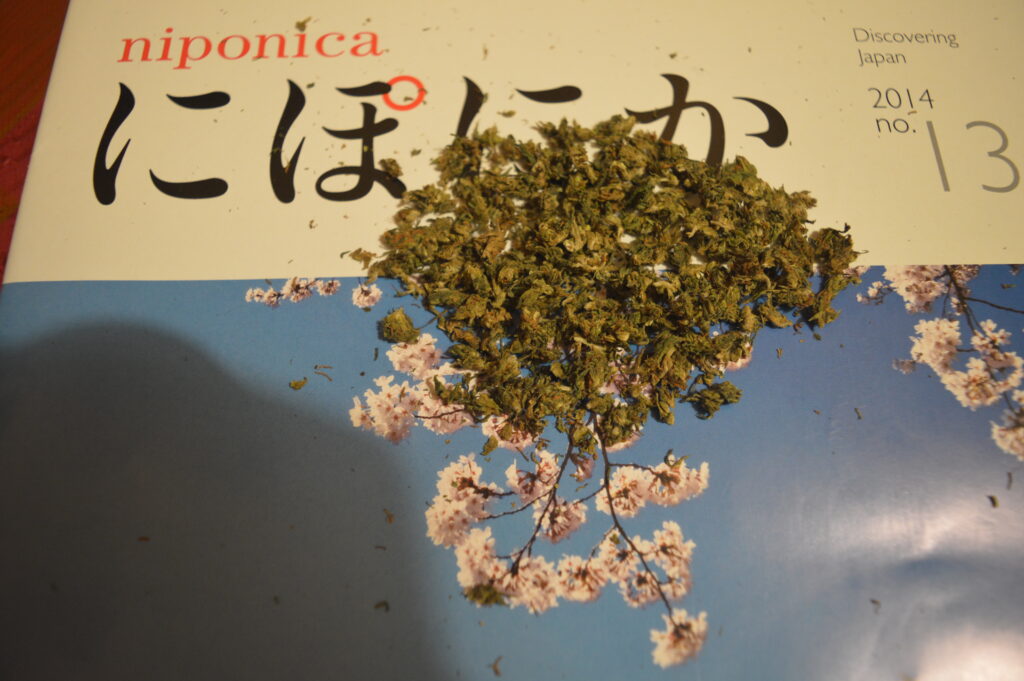
However, this did not lead to the legalization of the medical use of cannabis in Japan. A study by Otsuka Pharmaceuticals, completed in 2015, involving the use of cannabis in the treatment of patients with advanced cancer was inconclusive.
However, there are some signs that the country’s attitude toward medical cannabis may be changing. In 2019, the Japanese government approved a clinical trial of Epidiolex to treat two conditions related to epilepsy.
In early 2021, Tokyo held discussions to amend the Cannabis Control Law in Japan, and the Ministry of Health, Labor and Welfare intends to approve the use of pharmaceuticals containing cannabis. However, to date, the law has not yet been enacted.
History of cannabis in Japan
Cannabis has been prevalent in Japan for centuries. Research by Takayasu, curator of the Hemp Museum, has shown that the earliest evidence of the plant’s use in the country dates back to the Jomon period, roughly between 10,000 and 300 BC.
Archaeologists have found cannabis fibers and seeds in western Japan, indicating that the plants were used to make clothing, bowstrings and fishing lines. Ancient cave paintings have also been found depicting cannabis plants with leaves and stems very similar to currently known varieties.
Cannabis has always played an important role in Japanese society for many centuries. Mentions of it can be found in the Manyoshu, a collection of poems that can be dated back to the 8th century. Even ninjas used cannabis in their training, jumping over it every day, as some varieties of cannabis were characterized by their fast growth. There are also ancient woodcuts that date back to the 1600s that show women spinning cannabis fibers and farmers harvesting the plants.
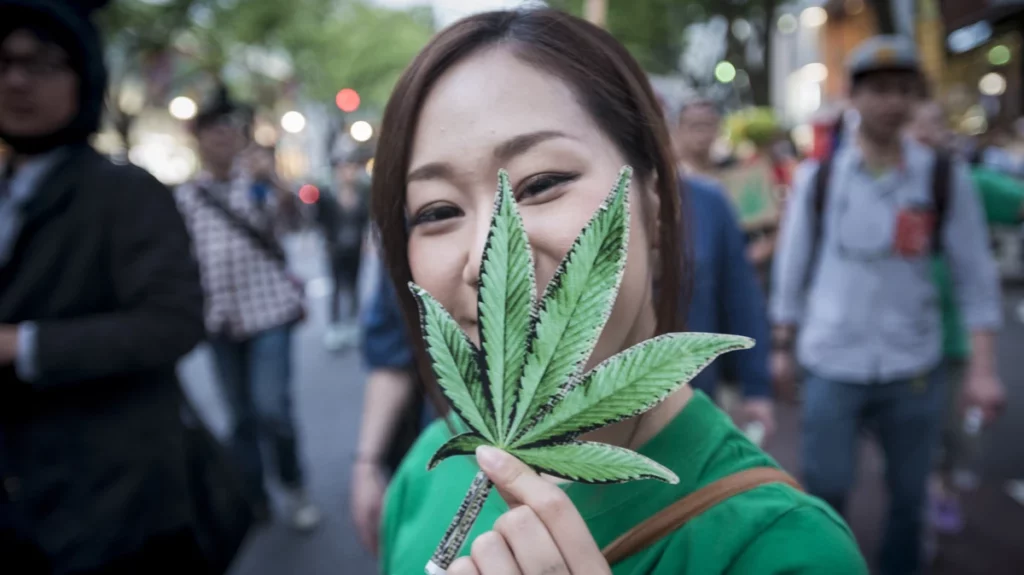
Cannabis has also been associated with the religion of Shintoism in Japan. Shinto priests believed that cannabis could purify the air, so they waved branches or leaves around to get rid of evil spirits. In ancient times, cannabis was considered a symbol of purity, so brides often wore a veil made from the plant when they got married.
However, the role of cannabis in Japanese society changed significantly after World War II. As a result of a law passed, its use was banned and social attitudes changed. The plant, which was once held in high esteem, is now seen as a dangerous substance and many people avoid it.
However, thanks to the emperor’s permits for cannabis cultivation, the cannabis industry in Japan has been saved from extinction. Currently, cannabis continues to be grown in the country.
When will cannabis be legalized in Japan?
It is unlikely that Japan will legalize cannabis for both medicinal and recreational purposes anytime soon. While this has allowed some companies to conduct studies on the health benefits of cannabis, none of these studies have led to anything further.
It’s important to note that CBD was legalized in 2016, marking a slight shift in public attitudes. Whether this attitude will change in the future remains to be seen.


